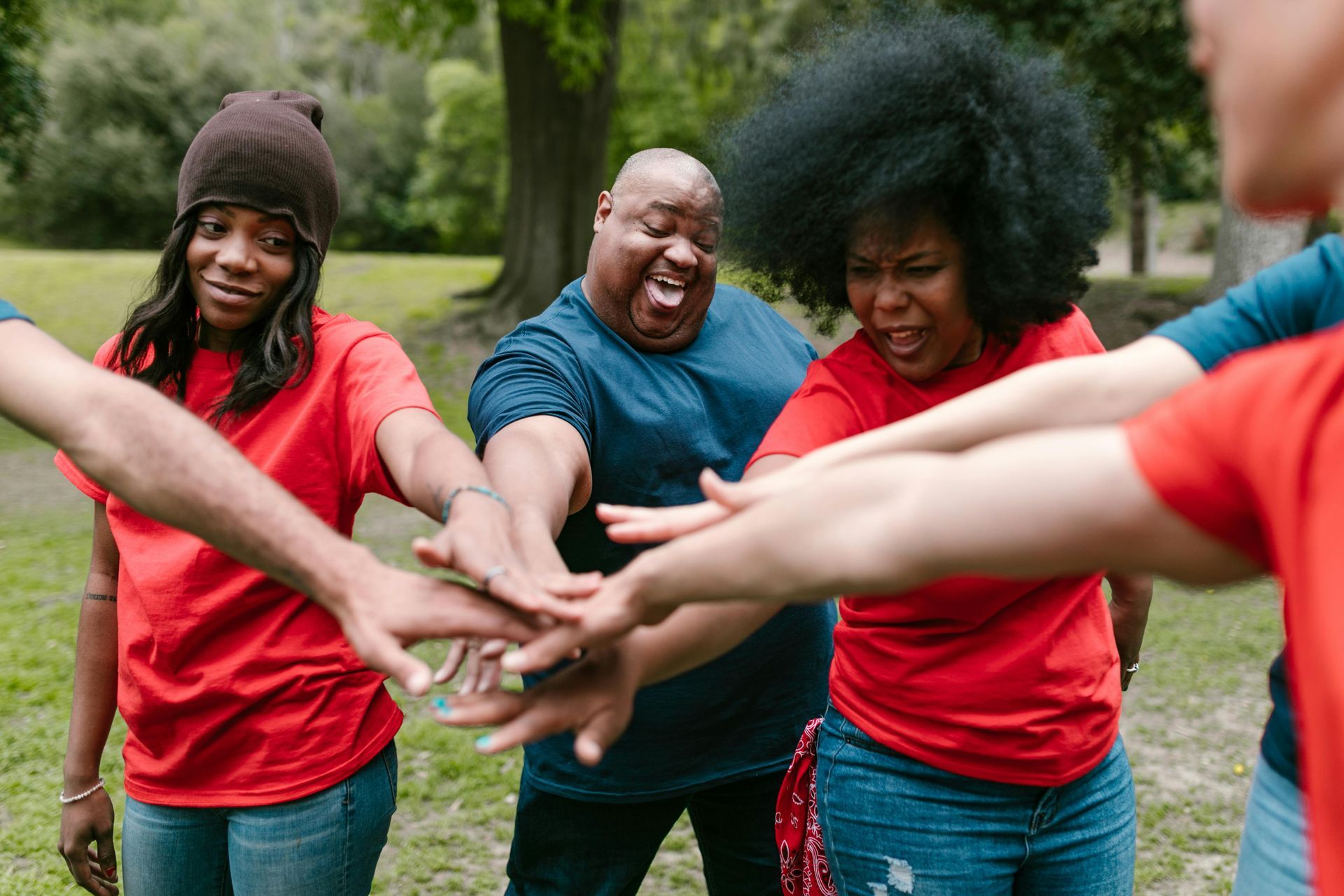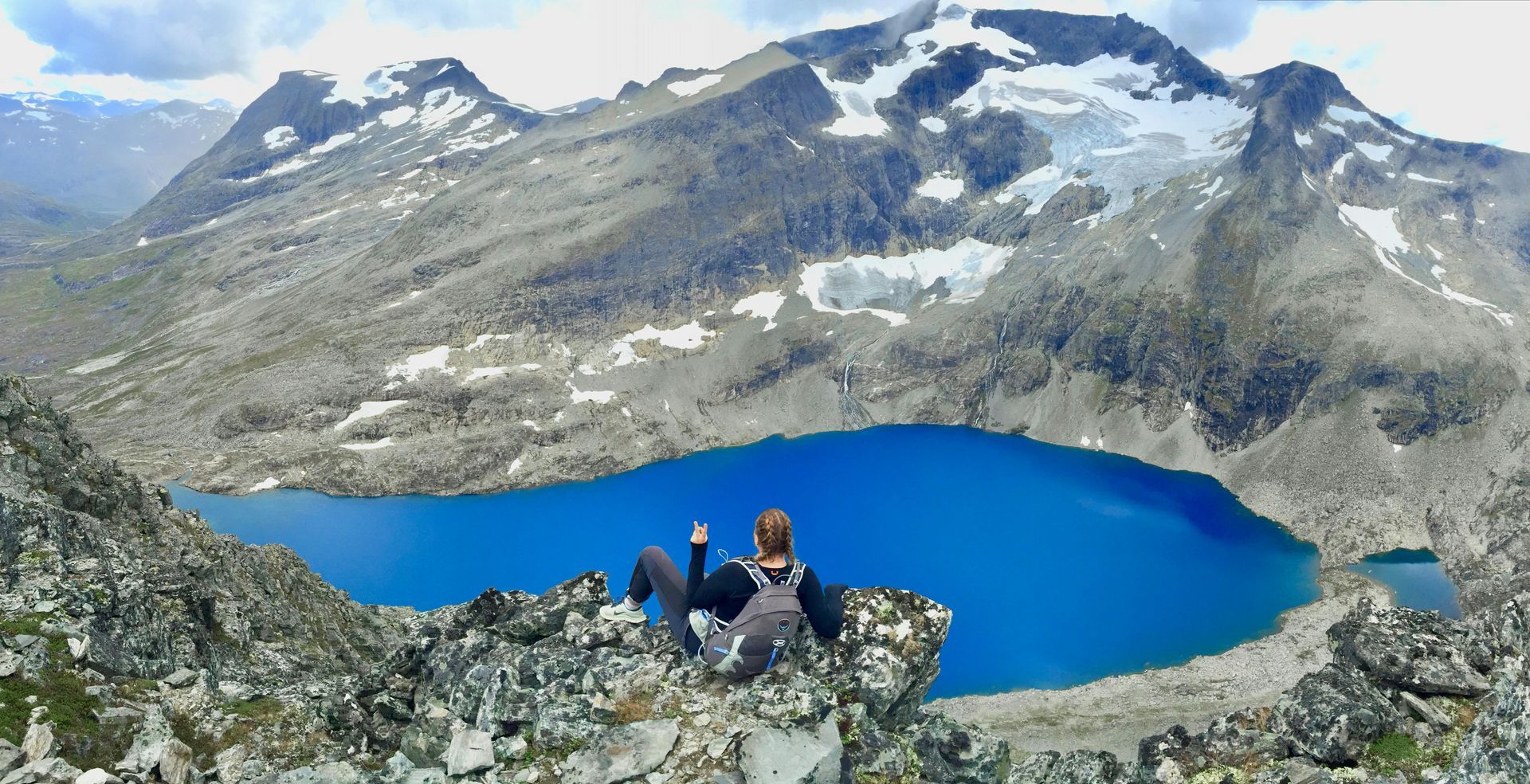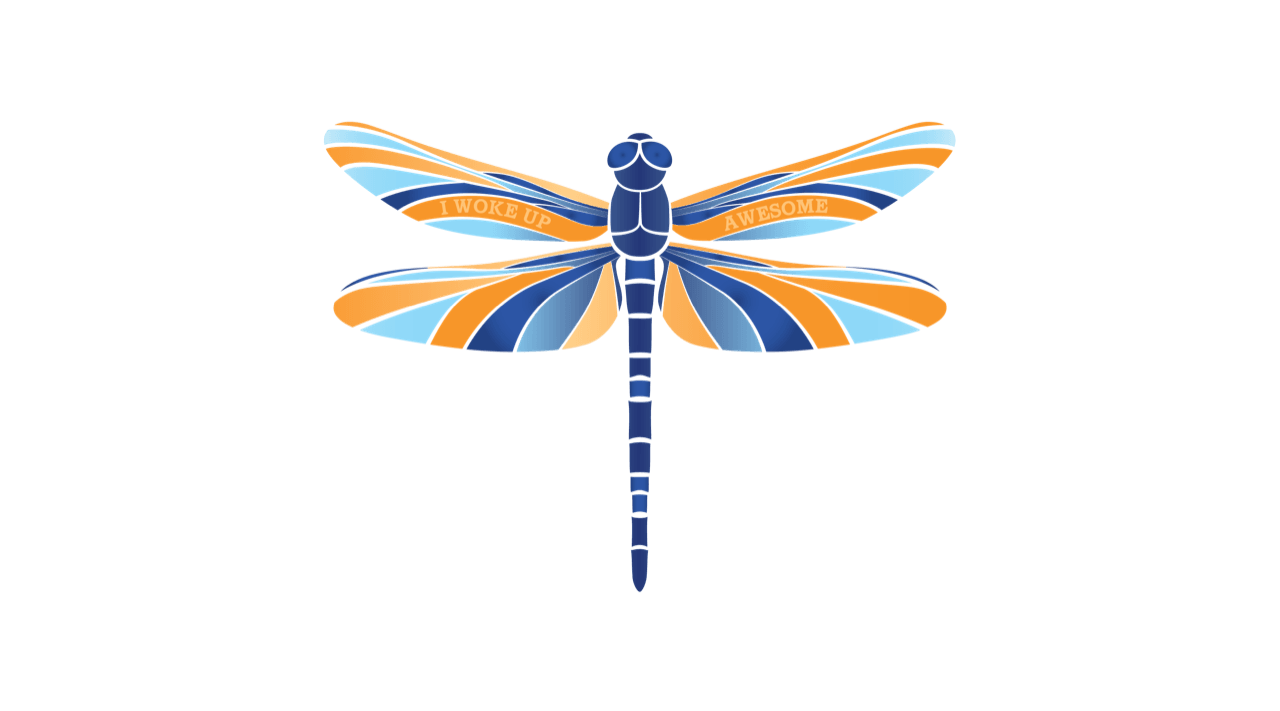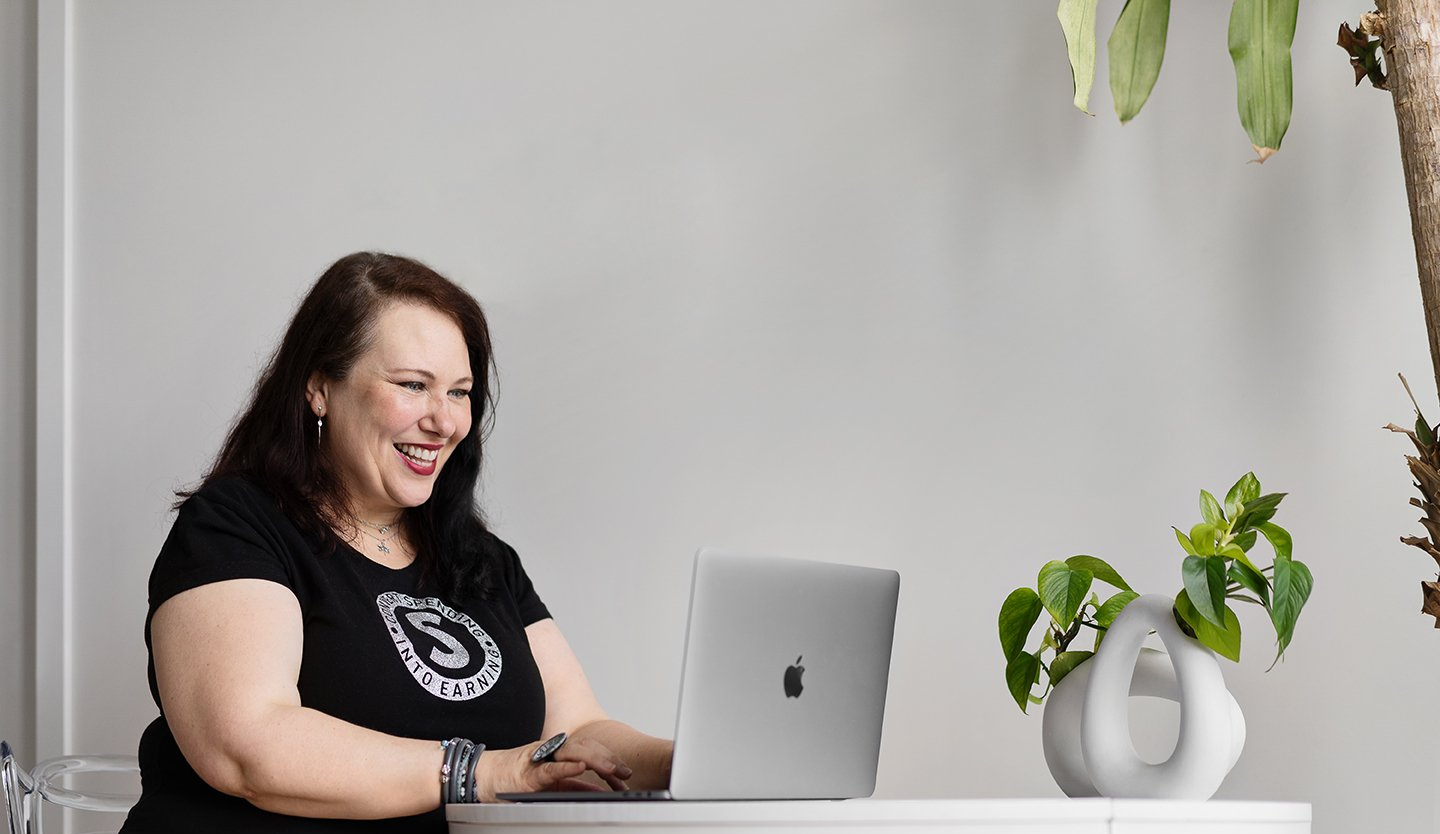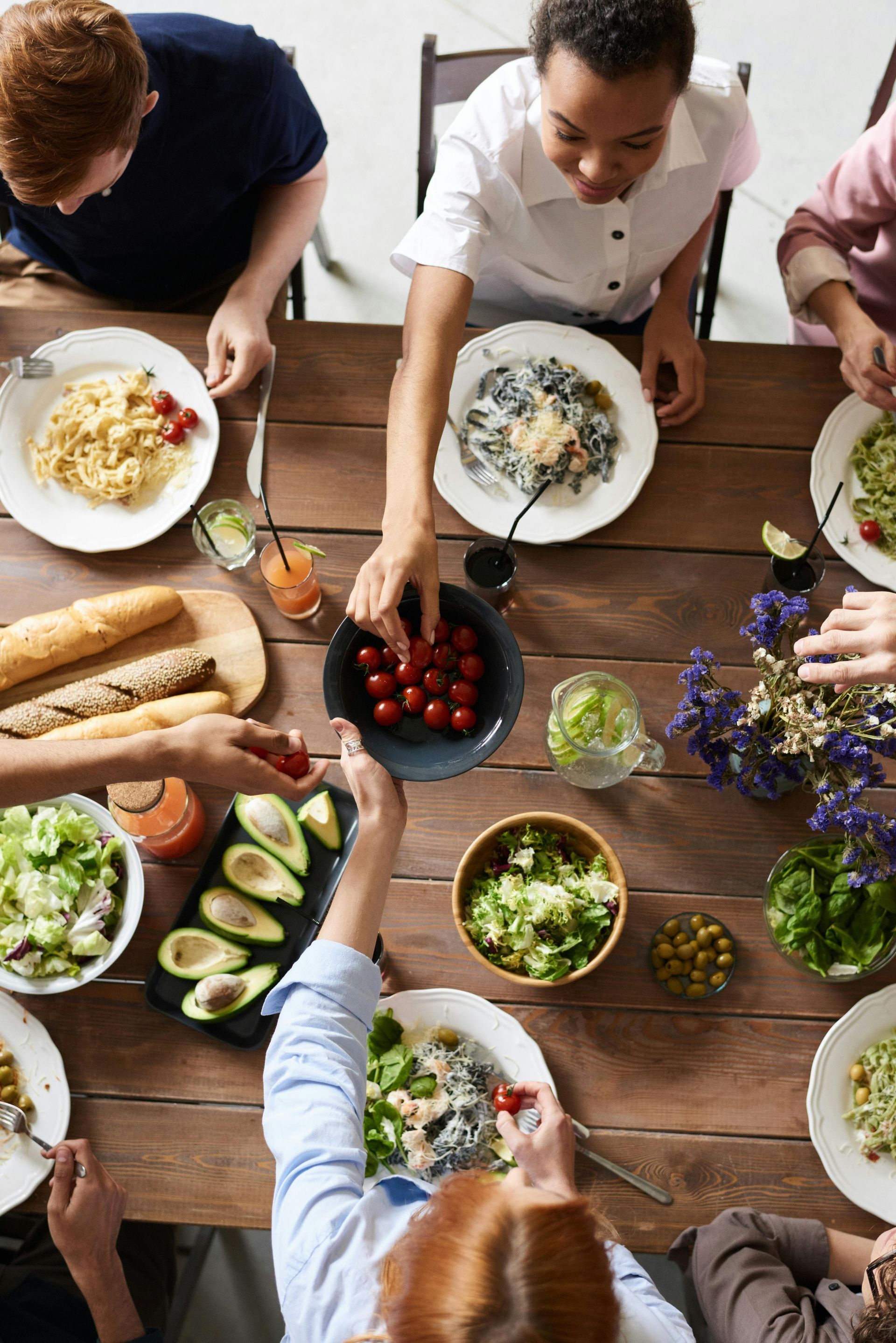I 🖤 FRESNO - Plate 58 with Dr. Ashley Wellman, Fort Worth, TX
This week we meet Dr. Ashley Wellman of Fort Worth, TX. Dr. Wellman is a criminologist specializing in trauma/victimization. She has published numerous academic articles on unsolved murders, homicide survivors, and sexual assault. She frequently appears as a media expert/television commentator and serves as an advocate for families impacted by violence. As a widow and single mother, she has had to rebuild and redefine her life. Now, as author of the “My Friend Fresno” children's book series, she is creating a life of full of magic for her family while spreading a message of love, acceptance and friendship to all those who interact with her business. For more about Ashley, check out: www.ashleywellman.com To join the whacky, whimsical world of My Friend Fresno and to shop the Bone Boutique, visit: www.myfriendfresno.com.The body content of your post goes here. To edit this text, click on it and delete this default text and start typing your own or paste your own from a different source.
Connect with Dr. Wellman:
https://www.instagram.com/myfriendfresno/
https://www.facebook.com/MyFriendFresno
Connect with Trista's PL8STORY Podcast
Connect with PL8STORY:
Trista's PL8STORY Podcast Links
Nominate a plate - https://www.pl8story.com
Meet your host - https://www.iwokeupawesome.com
Subscribe to Trista's PL8STORY Podcast on Apple Podcast (http://bit.ly/itunespl8story), Google Podcast, Spotify or your favorite podcast app and access all published episodes
Episode Transcript
I 🖤 FRESNO
Trista, Host: [00:00:00]Welcome to this week's episode of Trista's PL8STORY (Plate Story) Podcast. I'm Trista Polo from iwokeupawesome.com and I am your host. Each week, we learn the story behind that vanity plate. You know, the one you saw driving down the road... what did it say? What did it mean? Why did they choose it?
Welcome. I'm so excited for this week. We have Ashley Wellman from Fort worth, Texas. Her license plate is I 🖤 FRESNO. When we had our initial call, I was like, Oh my gosh, I can't wait for the actual interview. Welcome Ashley.
Ashley Peake Wellman: Hi, I'm so glad to be here.
Trista, Host: I'm excited to have you. Now let's jump right into your plate story because I want to hear why you chose it, but also how you were able to have I 🖤 FRESNO as your plate.
Ashley Peake Wellman: Okay. So it's funny because when I meet people, they'll say I'll be walking to the car. They're like, Oh, you're from Fresno, California.
And I'm like, no, no, no, no, no, no. It has nothing to do with that. So the picture I actually submitted to you when we first started talking was me [00:01:00] with a skeleton skull in my hand, along with my license plate, I 🖤 FRESNO. So the way that came about is my now six year old Reagan, her best friend is named Fresno and that wouldn't be very special except for the fact that Fresno happens to be a three-foot posable skeleton who has, who has been in our family for the last four years.
When she was two I'm a criminologist. So she adopted Fresno from he's an office prop of mine. And she said, you know, you can't take him away. That's my best friend Fresno. And it's like a dog she had named him. And so as a family, we were kind of stuck with. There's posable skeleton who sends, has really added so much fun, and joy to our lives.
He goes on trips with us. He goes to the movies. He takes naps and baths and all kinds of things with my daughter. So it's been hilarious. It's been a cool adventure. But it would have never made a license plate except for the fact that after tragedy hit our family, I decided to write a children's book.
[00:02:00] Right. What else should a criminologist do? But transitioned to become a children's author. And the main character are so approachable. But the, the main character in the book is Fresno. And of course, Reagan, who's the girl who dances with skeletons. And so as I'm starting to plan this, right, one of the first things I did was how can I brand the Fresno brand. And one of my friends was like, you should get a vanity tag. And I had always kind of been one of those people that went, ah, I don't know, you know, do I really want to draw attention to my car with my family and those kinds of things. And I thought, yeah, with this, I really do. I didn't want necessarily one of those stickers on the back of my car, but I wanted a talking point.
And so I told my friend, I said, how many years should I get for this vanity tag one, three or five? And I remember him saying, well, it kind of depends on how much you believe in yourself and the brand. And I thought, well, five years it is. So I signed up for my license plate and in Texas, the unique thing is that there's a couple of symbols you can [00:03:00] pick to add to the background of the license plate.
And so what I actually registered was I space Fresno. But when I registered it, I actually put I star FRESNO and that translated to being printed as I 🖤 FRESNO. So I just got very clever with the options on the license plate. And here I go. Now I drive around in my Honda pilot with, I 🖤 FRESNO on the back and I get to explain the story to people who ask.
Trista, Host: That's awesome. There's so much I love about that. I love that you used the story of your daughter's childhood companion to deal with tragedy, like as a catharsis. And it seems like it really did the job. Like it really gave you something special to heal with.
Ashley Peake Wellman: It really did. So in 2018, the tragedy that hit our family, we had just moved to Texas brand new in Texas.
I was, I was about to start this dream, job, you know, progression. I'm a professor of criminology. And so I had actually taken a huge career step back [00:04:00] to move my family to Texas and kind of start over to rebuild my career as a professor. And the day before I started at my new university, my husband died in front of my daughter and I due to a pulmonary embolism. It was out of nowhere. He was young, healthy, beautiful human being. And I, in that moment, I'm here in this new state. I'm, you know, alone. We don't really have people to help us grieve and cope. And one of my very dear friends said, Ash, what if you use creative writing as a way to step away from the heavy research you do?
I actually work with homicide survivors and sexual assault survivors. And so. And that had always been a passion of mine because I didn't know the trauma and I couldn't really relate to the people I worked with, but in that moment after his death, it was one of those things that said maybe creative writing could let me step back from very trauma informed, very trauma, heavy research.
And really focused on healing, my daughter and I, and that was the impetus of that book. And now it's become [00:05:00] this really, like you said, this thing that we have ownership over this, this brand and this business that even my six year old, she's like this co-CEO with me, and it's just been so much fun. And now seeing how that story's impacting other families, it's, it's amazing.
It's so magical.
Trista, Host: Well, I am so sorry to hear about your husband. And just hearing you, you had told me before, and just hearing you tell me again, I came right back to the horror and the sadness and the grief that I'm feeling, just hearing what you guys went through. So I really am sorry to hear about that so much.
I love that you partnered up with your daughter to get through it together.
Ashley Peake Wellman: Yeah. Okay. Really important for us. I, as an advocate, I had so often told my families. The importance of grieving as an individual and grieving as a family unit. And so then when he passed away, I really felt like, Oh my God, I hope what I've been telling people is valuable information because I'm [00:06:00] going to have to follow this advice.
And so very much dedicated to saying, okay, I need to grieve. I need to grieve as a mother, but also as a wife and as a friend. And then I need to make sure Reagan grieves and we grieve together. So. I didn't shield her from a lot. And she was only four at the time. I made sure she saw me cry. I made sure she saw me fail at things to be angry, to be quick to laughter you know, like all of these different feelings we have in grief.
And I really do think that was one of the biggest blessings we gave each other was kind of that.Authentic transparent grief because now we're so much closer. And when one of us is really struggling, there's a lot of understanding. Even her being six and me being, you know, this ripe old 36, it's really cool.
It's been a, it's been a powerful journey, a hard journey, but a very powerful journey because I got to do it with her. That's the biggest gift that Buddy, my husband, left me was this baby that got to really be my best friend and kind of companion throughout everything.
Trista, Host: Yeah. And how's she doing with [00:07:00] everything two years later?
Ashley Peake Wellman: You know, we have the thing that I am so amazed by is she's able to articulate her journey and her experience and her love for her dad and the things that she misses and feels. She'll like just the other day. She's like, you know, I'd do anything. If daddy could snuggle me again, or I really miss daddy snuggles, or do you think dad would be proud of me?
So we have moments of tears and kind of just. You know, kind of regression back to the beginning of stages of grief, like everybody, but now I more so see her articulate emotion. And I also see her use her experience to help others. So she, you know, that's what the book is about for us.
But even in our personal life, we got a message on Facebook that said, you know, my niece just lost her sister. She's only six can, you know, can you offer me any advice? And I said, well, Would you want Reagan to talk to Tessa? You know, we, we bonded over that and Reagan was able to call another six year old and talk to her about, you know, like it's okay to be sad and your sister's always going to be a part of your life.
And if you ever miss her, you can just put your hands here and know [00:08:00] she's in your heart. And this is a six year old able to almost offer grief support to another six year old. And now that's this really precious friendship that focuses on so much more than grief, but started with a six year old, having the ability to communicate and articulate how she's processed grief and how she can be there for another friend.
So in the midst of the horror of his death, you see so many beautiful moments that I go, yeah. You know, it's so obvious that he had set us up for this life of magic. And I know he'd do anything if he could be here to witness it, but now he's just up in heaven, eating donuts and watching us, you know, like really fulfill this plan of, of joy.
And it's, it's just exciting.
Trista, Host: That's great. You know, I think people struggle with how do you interact with the child around grief, especially such a close loss, like a parent, even a grandparent, somebody they have so much connection with. And it's hard to know what the right thing for the child is. You don't want to traumatize them [00:09:00] for life, but you don't want to shield them.
So they can't go through the process themselves. So navigating that has got to be very challenging. And I really acknowledge you. Thank you for, yeah. For bringing all of your training right to your doorstep. And then even being able to pay that forward in having her make a difference for another child.
That's just amazing .
Ashley Peake Wellman: For me. I knew. And the hardest part was literally, as I kissed him goodbye in the hospital, I'm like, I have to go home and tell a four-year-old who watched her dad die in our home. Right. I had followed him to the emergency room with hopes of he'd be resuscitated, but I knew the moment I kissed him goodbye.
I said, I have to go tell her. And I have to tell her the truth, because I think we do want to shield our kids from things and say things like, Oh, you know, he went to sleep or he's flying in the sky now. Like, no, I had to start with the honest fact, your dad is not coming home. He passed away. He's dead. And that's very very heavy and almost feels impossible to do. I mean, I remember [00:10:00] going, like, I can't say this out loud and I remember the moment I did and her reaction and the wailing and the things that happened after that. But then, because I was honest and because I use real words and because I never didn't answer a question from her, honestly, like, was he scared? Did he hurt? You know, like, do you think they hurt him at the hospital? Like she would ask very adult questions about a very adult situation. And I think we would love to believe that kids don't understand and they can't process those things. I think they process it on such a pure level that it's very real to them.
And so honesty. Real words, you know, like I remember someone in there in a support group, they said, Oh, I told her that their dad, you know, was, was in the, in the sky with the planes flying and that, you know, he just liked being up there. And so when they got on an airplane, they all started crying because they said, I thought, we'd see him.
Cause he's supposed to be up in the, the habit, you know, up in the sky, just flying like an airplane. And she hadn't really given them a concrete reality of what had [00:11:00] happened to their dad. They didn't understand. He was actually dead. And so the, the importance of our words and the acknowledgement of our kids' ability to understand heavy things that was really eye-opening to me.
And one of the things I did, right. When everything happened is I rushed to Barnes and noble, and I got every kid's book on bereavement, not always what I really needed, but. I just said, like, I'll use any tool possible. And, and I was so grateful here in Texas. Anyone who's listening in Texas, there's actually a center called The Warm Place right here in Fort worth that is a nonprofit that allows kids three to 25 I believe to process those immediate deaths in their family, no matter what the cause of the death. And that literally was a lifesaver for us, that professional help. As good as I was as a, as a scholar, understanding grief, loss and trauma, I knew I needed professional help with her and me.
So, so important. So important, the honesty, the directness, and really this idea to let her learn her story of grief and trauma.
[00:12:00] Trista, Host: Yeah, absolutely. And getting professional support, whether it's books. And therapy groups. I think that was a huge benefit I'm sure because they know how to help navigate that. Now you've dealt with tragedy in your job in your profession, your whole life.
You're a criminologist, but you don't just deal with any kind of criminology you deal with actually.Like cold cases, right? Like unsolved mysteries
Ashley Peake Wellman: Yea, I do. And so, so it's funny because if I say, Oh, I'm a criminologist people immediately, even my parents will say, Oh yeah, like the CSI stuff. That's what she does.
It's not, it's not, I study why and how crime occurs. What, and you know how the impact of crime occurs in our communities, how society kind of works, you know, with law and those types of things. And so I'm much more of the sociologist studying the events that are, that surround. You know, crime. And so when I started [00:13:00] my passion, like any other woman in the United States was true crime murder.
I wanted to understand, you know, how and why murder occurs. And I really wanted to know the offender perspective, the case investigation. And so I started working in a cold case unit and I said, okay, I want to learn everything I can. I want to do my dissertation, which is basically a book about cold case processes.
And then a mom came in and she just said, I want to know what the expletive happened to my daughter. And I want to make sure you're working her case. And she was so upset. And I, at the time I was 25, they pulled me out and said, Ashley will tell you what happened to her. And I thought I will, Oh my God. So I went out and I talked to her and I really didn't talk. I listened. And I learned from her that she said, I drove from New Jersey. Down to Florida at the time. Right. For nothing, except to make sure they remembered her name, that they were working, her case, that they knew how much I loved her and how important she was to her family. And I thought, my God, this has been almost [00:14:00] 15 years.
And she she's almost as raw as if it had happened yesterday. And she's desperate to know that her daughter mattered. And that's when my whole perspective shifted. And I really started saying instead of the typical, Oh, I want to know what happens in the crime and I'm intrigued by the offender. I was moved deeply by the family members left behind, especially in these unsolved murders, because there is no resolution.
There is no one to blame. There's no one held accountable. And so I started studying the grief, loss and trauma that surrounds these unsolved murders. Then started working with police departments about how to work with homicide survivors in general. And as a college professor, I stepped up to be a sexual assault advocate, working alongside men and women who have been sexually assaulted both on and off campus to help understand really their journey and guide them through different options that they have after a sexual assault.
So. Beyond powerful. I don't offer them nearly as much as I've gained from the people that I work with for my [00:15:00] students, from people brave enough to share their stories. So that is what gave me power. When I suffered my own trauma, I said, I I've witnessed so many families in the midst of the most horrific moment of their life have grace, find joy find appreciation, right. Struggle, but survive. And so I knew I was going to be okay. Mainly because of the people that I worked with. So my job has been just fascinating.
Yeah, absolutely. Now, can you tell me the diff like how does it become a cold case? How long does it have to be? What makes it a cold case versus an open case?
Trista, Host: Is it just that they run out of leads?
It really so there is no universal definition for cold case homicide. Ashley Peake Wellman: A cold case doesn't necessarily mean it's not being worked, but it means that there clearly cannot be the same resources and the same detectives working that case because it's not, there's so many more cases coming in, right. So my definition and what I started with my research with [00:16:00] was from a man named Walton. And he said that a cold case homicide is typically at least a year old. There's no new leads in the case. Right. They've been exhausted as of now and B. And, or the original detective has retired or isn't working that case anymore. And it's been shifted over to new detectives. And so a lot of times families will hear, Oh, my case is cold and they assume it's, it's what it sounds like, that it's really put away and it's done, but it's this closed, you know, file. Not always.
Trista, Host: It makes me think of like they've given up.
Ashley Peake Wellman: Right, right. And not always, in fact, sometimes there's a breath of fresh air. If your case gets moved over to a cold case unit, it's new eyes, it's young detectives, it's someone dedicated to making sure they can follow up.
And as crazy as it sounds. At some point, time, which actually works against detectives, right. And against evidence and all these things. At some point, there's this shift that time actually benefits the case. And so it sounds crazy. But if you think about it, maybe at the time [00:17:00] of a murder, I'm married to somebody who I suspect killed somebody.
Right. And, but 10 years later, we've gone through a divorce. 10 years later, they passed away. 10 years later, I'm, you know, willing to share something or I need to get out of the marriage or something like that. So I might come forward. Witnesses may not feel threatened or they've moved, or they've been able to say, you know, this is weighed heavily on me.
I'm going to come forward. Evidence and scientific inquiry grows with time, right? There are so many new tests we have now that if evidence has been preserved times a benefit, think about DNA. I mean, we used to be able to test, is it A or B blood? Now we can literally just from a spec and not even blood just from a speck, we can develop a face, a prototype, right? Of like, this is this person's going to look like this is their heritage. This is all this, the genealogy stuff that you're seeing right now made famous from the golden state killer investigation. But that's been happening for years where people submit their DNA and say, I think I'd [00:18:00] like to contribute to a database to see if anyone in my family is you know, is a it's fascinating.
So in a cold case unit, sometimes you're given a gift of this case is getting a breath of fresh air, breathed back into it. One of the things I really advocate for with, with those detectives is just a sense of communication and consistency and being available to the family members as difficult is that is.
Because the answer is typically, I don't have an answer for you. I don't have progress in your case, but even that allows a family to say, but they haven't forgotten. They answered my call. They gave me five minutes. I know that they remember her name. They let me share her name. They let me tell them how important she is or he is right. And then, and then there's peace in that.
So, There's so much value in that relationship with the family and the detective. It's very, very cool to watch that play out when it's done right. And if it's not done right, to see how detrimental those relationships can be to survivors is also a [00:19:00] very, very powerful thing that we have to pay attention to.
Trista, Host: Yeah, absolutely. Now you work directly with families. What role do you take in that whole process?
Ashley Peake Wellman: So, honestly I've been more of an advocate figure or someone who is more of just a resource. The thing is, is I'm not the expert in cold case homicides. I tell people that all the time, I just happened to be Dr. Ashley Wellman, which gives me a really unique platform. And I happened to be pretty rambunctious and I'm willing to kind of be scrappy and fight for people to gain resources, to try to change policies, to try to educate, you know, law enforcement, the media, the families. So I'm much more of a resource advocate for them.
It's no official capacity. I serve on several boards for homicide survivors. I've been key in different events to raise resources, to raise attention to, to try to rewrite legislation, things like that. But honestly, I just happened to be a professor using our platform and guiding our research towards it.
And families have been willing to share with me their [00:20:00] experience and they're willing to tell me their story so that I'm able to keep that fight going.
Trista, Host: You're like the Brenae Brown of murder.
Ashley Peake Wellman: Oh my God. That's the biggest compliment ever. That should be my tag, but I'll ask her permission. I'll call. Okay.
Trista, Host: I think that's probably a good idea, but I mean, it's important what you're doing, right. Gathering the data. Cause you're an analyst as well. And so you're looking at the numbers and you're looking at the trends and that kind of thing.
So tell me a little bit about some of the cases let's have some good news, like some of the cases that actually got resolution. Cause I know that that's what the families are looking for. They're looking for justice for resolution.
Ashley Peake Wellman: Okay. So here's the interesting, let me talk about this first it's it's I just wrote a paper I think last year about the hope that families have and the expectations that cold case families have even 10, 20, 40 years later after the death of their loved one, there is an ultimate joy and optimism and hope that I will [00:21:00] one day know who killed my loved one.
And there's also a lot of pressure that families put on themselves and on the system to say, once that happens, once I get justice, right. And justice to me, once you understand that justice doesn't always are very rarely happens, but once I get a resolution in this case, I'm then going to have peace and that's the moment I can start to heal.
And one of the things I've really encouraged my families is you can't wait for that ultimate resolution. You have to heal in the moment and with the circumstance that you have, because you're robbed of 10 20, 40 years, when you continue to believe that one piece of evidence is going to change your grief structure.
And so what I talk about in this paper is that these ideas that we don't think about is that when the case gets solved, right, there's this expectation that now I can grieve and be whole and heal. But solutions can bring devastating results as well. A trial is no joke for a [00:22:00] family. I've had families who have had their cases solved, say I'm worse off now for what I experienced in the courtroom, the way the prosecutor talked you know showed pictures to the jury to inflame the jury the way the defense described my loved one as this horrible person this prostitute this worthless woman, right?
Those things can be devastating to a family. And the outcome is often not what's expected. So like in my head, if I think about, okay, God forbid I lost my child and I'm hoping that a case is going to come about offender's going to be caught. They're going to be prosecuted. In my head, I want the ultimate punishment, which is either life in prison, without parole, depending on who you talk about, that could be worse than some people said or the death penalty.
That's what I want. Well, very rarely 20 years after the fact, is that going to be what you get. The offender could be dead. The offender could be someone, you know, so imagine finding out it's your cousin or your uncle or something like that, who killed your loved one. Now I have to [00:23:00] process again, like I've lost two people.
Now what kind of punishment do I want? Right. And the other thing is that rarely is anyone going to get the death penalty. If that's the expectation very, very rarely less than 1% are even considered for it. And then beyond that, you know, very, very rarely, and it's only going to be, if it's an African-American killing, a white person is really what that's the most common death penalty application.
So the expert of that court process can often outweigh the actual benefit that comes from the court process. Now that doesn't mean that these families aren't hopeful. I don't want a resolution and aren't joyful when there's a resolution. One family I worked with down in Florida, the young girl had gone jogging after you know, in this college town.
And it was, I think 25 years later that they, they found a journal of an inmate who had recorded the multiple murders he had done. And one of the descriptions was of this young girl, Tiffany. And so they linked that case. So and then from that, they actually found DNA that matched another case that they were [00:24:00] working, that they had often thought was linked.
So both of those families of cases, I had worked, found that resolution . Another family. Michelle Mechy, who's one of the most powerful mothers and women and advocates. She runs Corey's Network in Kansas city, which is an organization that fights for unsolved murders and families of homicide. Her son was killed.
She actually held him as he died and she told the police immediately, I know who did this. It's this young man. And they didn't believe her. And so they actually started to blame her other sons and her family. And they started making these really awful claims about sexuality and all of these things too, to shame the family.
Sure enough. She hired a private investigator and seven years later, they arrested and convicted this, this kid of murdering her son. And it was the man, she said seven years earlier. So, so there's a lot of just. Like the fight and the determination, you know, we always hear about like the mother's love or, you know, someone advocating for someone else.
It is fearless fighting, and now [00:25:00] Shelly can sit back and say, okay, my job is, is done in that realm. And now she's starting to start to focus on our own health. So there is joy and there is a lot of work that happens after those resolutions occur. So yeah, it's, it's. It's complicated.
It's there's hope. There's disappointment. There's a lot of work that happens. Even if a resolution is reached .
Trista, Host: Wow, it's so much, there are so many more layers than I ever would have thought. And I never occurred to me that the resolution might be worse than the not knowing.
Ashley Peake Wellman: Can you imagine your other son, like, let's say you have two kids one's murdered and then, you know, for years you're fighting, you're fighting, you're fighting.
And then all of a sudden you realize it's your other son. It's your ex-husband it's your uncle you like, and that happens. You're more, you're most likely to be killed by someone, you know, or a, at least a friend. Right. And so the very first mother I ever talked to, she said my biggest fear is that one of the men, young men who held my hand where my son died, also killed him.
[00:26:00] Like, that's my very real fear. And I thought in my head, I went and that is very, very possible. And she knew it. She knew that it was more likely someone who was helping her grieve than someone who was a stranger on the outside. And so, yeah, we don't think about those things. We don't think about the forced interaction with practitioners.
So these families, you know, grief in general, like my grief was horrific, but it was between my daughter and I, and my family. These families have to deal with the police constantly sometimes saying that they might've killed the person. Right? So there's that added layer or that someone in their family killed them.
Right. There's that there's forced media interaction. The media is not kind to victims. They want to paint that you're safe and the victims there's a reason they got killed. So it's because she was a dancer it's because she smoked weed. It's because of this and that. So they paint this really ugly picture, but families feel forced to continue that dialogue with the media because at least my family member is in the media.
So you can slam her all you want, but people see her name and it I'll keep, [00:27:00] I'll keep talking to you so that you cover her. Bereavement groups can be devastating to families because, sometimes I don't need to hear 12 other people's heartbreaking story. So there's a lot of things we don't think about that forced interaction that and then grief in general society is terrible of, you know, helping grieving individuals, whether it's murder or a natural death.
We say things like, Oh, he's in a better place. This was God's plan. You know? You should be over it by now. You're not grieving enough. You're grieving too much. So. Poor things. I mean, grief in general is a mess, but then you add violent crime to it and it's it's even worse. Yeah,
absolutely. I have to get a shout out to a previous episode.
The license plate was GPS hope and they help families whose children have died before them. So it's not necessarily violent reasons, but she was saying that five years is a typical average amount of time to have the grief feel like it happened yesterday. And [00:28:00] that it's that raw. Especially when it's somebody that was your child, even as an adult child, still that it's just. You know, horrific to get over and then add the violence to
it, right? The unexplained other layer, right? Unnecessary. The thing is, is, is we have the Kubler-Ross model. And even as a griever, we want directions of how should I grieve?
And there's this, this, this feeling of failure when I'm not following these nice little stepping stones, that aren't real. And there's an expectation of people who haven't experienced significant trauma. To say she should have been over it. Like I remember going back to work four months later and being in my office crying because something had triggered me and a colleague that I thought was a dear friend came in and said, like, if you're still crying, like in a couple months or a year from now, you need to get some serious help.
And I looked at her and I thought, if you only knew. The help I've been getting and the fight I've been fighting every morning to show up here, right. Then you'd give me a lot of grace or you, you, you could extend some grace. But, but [00:29:00] even now, like, I mean, there's moments. Just the other day, my daughter was flipping through a photo album in my parents' house.
We had gone home and it was all of her dad holding her when she was a baby and she kind of got choked up and she said, I, I wish I had known him more and I wish he was here. And just that moment, it set off everything. Right. It's Christmas time. I wish he was here, you know, all of these things and I'm thinking, why does she know that at age six, she should know that kind of pain.
She watched him pass away. So it's like even two years later, even when I'm happy, even when I make it really brilliant strides, I have moments where it feels like I'm still holding him in the hallway, you know? And, and I wouldn't wish that on my worst enemy. And so I've learned. Grace. I've learned how to step up for friends that I wasn't necessarily there for in the right way because I've experienced it.
And so one of the biggest things I can offer your listeners is just being full of grace, whether you're the griever or you're the person who's in someone's life, who's experienced significant loss. There is no beautiful [00:30:00] way to heal. And the journey is so unique for every single person. Let them struggle a little bit, allow them, you know, some, some permission to not necessarily be themselves and realize that the person that they're going to become eventually it's going to be a new version because you're not ever going to be the old person after that, but they'll be okay.
And they'll be back to being your great friend and laughter and things like that. But the messy parts are allowed. And they don't diminish the character of that person. It's just a struggle. And some days I remember things where I'm like, God, that really wasn't me. You know? And I remember w same girl had said, like, you're just not the person I fell in love with.
And I thought, well, I'm trying, you know, really trying. So it's, it's interesting because we have an expectation and it just doesn't work like that, you know, 20 years later, I'm sure at Reagan's wedding, part of it will be her daddy's not there to see her. I'll rejoice in the fact that probably another amazing human is there to walk her down the aisle and that, you know, [00:31:00] she's had many people love her, but there's still going to be moments the rest of my life that I say, yeah, I miss him.
He was a beautiful part of our life and that's okay.
Trista, Host: And I think that that's the thing is nobody can really know what you're going through, whether it's grief from a natural or from a violent crime. There's so many layers that we don't show even our close knit circle. And so the, having the grace for others and just making an assumption that maybe you don't know what's going on for them, maybe the benefit of the doubt, you know, give somebody the benefit of the doubt.
Ashley Peake Wellman: And, you know, people will call me all the time. They're like, Ashley, I know this other widow, her daughter's three. You're like, I need you to talk to her cause you know what she's going through.
And I said, careful, I will totally talk to her. I will. I'd love to talk to her. But I will not understand what she's going through for many reasons. Right. Because of what was her relationship like with her husband? What's her bond like with her [00:32:00] daughter? What's her personality. What's her mental health disposition. What's her financial resources. Right?
So there's many times where I say I can give you an experience and I can share in the shared experience of just humanity. And I can give you advice of what worked for our family, but I also am going to warn you very heavily that this may not work for you. And, and you may walk a very different journey, right?
I, one of my dearest friends also lost her husband. It was my husband's best friend died almost a year before him due to a heart attack. So it was crazy because we're both these very young families We had watched, you know my friend lose her husband to a heart attack. And I think that's what prompted my husband to take care of so many things for us.
Right. I study murder, but then he watched his best friend pass away and didn't think about at age 40 that I might die and didn't have things in place. So that allowed us to learn what we needed for our family. And so I tell her all the time, like, thank you for being honest about your struggles, because it helped our family. When we didn't know we [00:33:00] even needed the help.
And so even, even someone who's suffered the almost exact same death, right. I don't necessarily have the same journey she has. And so even understanding that like, I am now so graceful with people who have lost their spouse. And I don't say she should be further. She should be okay. It's Nope. Her journey is so different than mine. Yeah,
Trista, Host: absolutely. And you were doing such good work, advocating and supporting. I know that you're a keynote speaker and a lot of conferences around these topics. You were just given the 40, under 40 in 2020. Congratulations. for the Fort Worth Business journal.
That's awesome. And you know, just thank you for all the work you're doing. This is very dark material like you're dealing with people's most traumatic events and you're standing for the right resolution and their hope not being [00:34:00] extinguished and the best possible outcome. And I just really thank you for that.
I know I don't have the stomach for it, so I'm glad you do because these people need people in their corner helping them with more than just the
Ashley Peake Wellman: investigation. Absolutely. Absolutely. Yeah. It's crazy to that then. The book, you know, my friend Fresno is now also kind of that grief, help story without being about grief.
So what I wrote when I wrote that story, right, it was, it was a break for me. And now I have families that I'm working with in other capacities with special needs children, with children who have been bullied, children who have been sexually abused. And they say my child can find themselves in Fresno and realize that even though they're now different, even though they've struggled, even though they haven't been treated kindly, they can still have a beautiful life and they can still find like self-acceptance and value. And we, as a family can learn from Reagan's character, which is this support person who just [00:35:00] fearlessly loves Fresno. Right. And can realize that these things that are scary, like death, like grief, like abuse, all of the things that I work with on a professional level in the book, you know, there's a line that says, " the things that scare us most are often just misunderstood." And so what a powerful message for all of us about things like sexuality, racial differences, religious differences, all those things that scare us and separate us. It's really this barrier that we put on it because we misunderstand, or we don't take time to get to know somebody, but if we did right, if you take time to get to know grief, Get to know trauma, get to know, you know, the, the effects of bullying and those types of things.
Is it scary or is it just misunderstood? And if we learn it, could we then start to dance with the things that have happened to us or the things that scare us? Could we just dance with them instead and have a much richer life? So, yeah. It's wild because in the back of my head, I think subconsciously the survivors and their journey and the things that I learned from that [00:36:00] actually translate into this children's book that never was meant to be this support.
You know, it was supposed to be this this just precious story for Reagan. And now I'm going, wait a minute. You see that right. And someone told me the other day, they're like, are you friends now in the book? And I thought, what are you talking about? I'm not, no, yeah, that's my kid's toy. And they said, no, but look at no, he's a skeleton stripped of everything.
Right. I was stripped up. I had multiple miscarriages kind of lost my motherhood identity. I lost my husband. My wife identity was gone. I suffered a career devastation. My career was gone. And so they said you were stripped to everything. And then you started to rebuild and learn that you can be this loved, valuable, right.
Successful person as a, as something new and, and, you know, it's, it's from people telling you that you're loved and that you're valuable and those types of things. And so, yeah, it's just what I never thought that was going to translate into this precious kids book about a skeleton and his best friend Reagan.
So. [00:37:00] It came full circle.
Trista, Host: Yeah, I think we don't realize we put something out there, especially something creatively driven. Driven from something from catharsis, we don't realize what kind of ripple effects it will have. And I have a feeling that your book will continue to make a difference. What I got out of it is kind of what you're saying.
Like. You don't have to be afraid of people that are different from you because they have their own special-ness and the monster under the bed thing for kids. I mean, that was just so great. Really.
Ashley Peake Wellman: And now she's sitting at the kitchen table, right. Having tea with them and playing.
Trista, Host: You know, instruments like yeah, exactly.
We don't have to be afraid of something just because it's unknown, it's mysterious. We can, you know, kind of just give it the benefit of the doubt and see what's special because we all bring. Something special to the table. Absolutely. I really thank you so much for all [00:38:00] the work that you're doing and everything that you're bringing to the world with your special passions and knowledge base, you know, the criminology piece it's important.
It's a needed piece. We need more than just the. Detectives and investigators and science criminology people to help the community. And I can really get that. That's what you're doing. So keep doing it. Thank you. So I'm looking forward to Fresno's next episode. With Other kinds of adventures, Fresno and Reagan are going to get into .
Ashley Peake Wellman: Right now in the bone boutique online, you can snag the book, you can find the plush doll and the puzzles there's kids puzzles.
And one of the cool things about the puzzles is. Yeah. If you're trying to talk about something really difficult with a child, letting their hands, be kind of, you know busy and letting their minds kind of be distracted. You can have amazing conversations with children. So that was one of the things that prompted them yeah was to allow like read the book, start working on the puzzles and say, have [00:39:00] you ever felt like Fresno? Has there ever been a time people weren't very nice to you. Have you ever felt out of place? But if I'm consumed with a project. I'm more likely to kind of share vulnerable things with you because I'm not having to look at you and tell you these things.
So we have that. And then in the works we have Fresno's first Christmas, we have some other little adventures of Fresno and a few new characters that are going to kick off some other series in the next year or two. So love it. Yup. Follow us on social media and on the website and join our wacky skeleton crew.
It'd be great. Yeah,
Trista, Host: indeed. And we'll have links to all of that in the show notes, including the plush doll, which I see over your shoulder. And I love that puzzle idea. I remember I was in therapy and my therapist wouldn't let me bring a cup of coffee in because it was a way to distract, but what you're saying makes better sense.
Like maybe if I was able to not have to, you know, stare my crap in the face, more [00:40:00] willing to talk about it.
Ashley Peake Wellman: That's what art therapy is about that's what music therapy is about. That's what play therapy is about. So especially with kids, instead of saying, Hey, Reagan, do you want to go to a therapy appointment?
It's much easier to say, Reagan, do you want to go create some art today? Or do you want, do you want to build a puzzle? And then like, I don't really let her know I need to ask her a difficult questions. They just come up in conversation. Or I say like, there was this one time that I felt like this. Have you ever felt like that?
And when she's busy, She's not thinking like, I don't know that I want to be vulnerable with her. Right. She'll just answer me. And so maybe she's not ready to talk, so it doesn't always work. That's not a, that's not a promise, but it does allow for kind of a different setting and a less intense and direct approach.
Trista, Host: Yeah, absolutely. You know, we talked about some pretty deep stuff today and some pretty dark stuff today, but what absolutely is sticking with me, from our first conversation and now is the light inside of you. And I just really thank you and [00:41:00] appreciate you for coming on and just sharing who you are, what you're about, what you're committed to, what you've been through.
And how it can help other people. Thanks so much for being with us today.
Yes thanks for letting me share my story and it gets better. Just keep going everybody, no matter what you're going through one day at a time, as long as you put one foot in front of the other, you've done a great job. So give yourself grace and give grace to those around you.
Beautiful.
Thank you for joining us for this week's episode of Trista's PL8STORY podcast. Please subscribe to Trista's PL8STORY podcast to get the story behind all those vanity plates, driving with you on the road. And if you would like to nominate the owner of a license plate, including you... Or visit any of our partners and sponsors come and see us www.pl8story.com. That's P L number eight story.com and give us the details.
If you enjoyed this episode, please drop a review and give us a share. I'm Trista Polo wishing you well on the [00:42:00] road to your next adventure.
I Woke Up Awesome Blog

